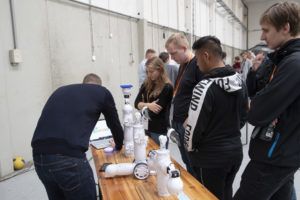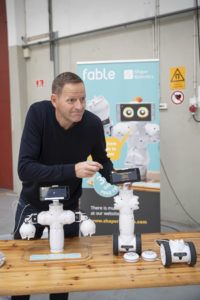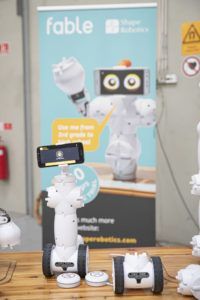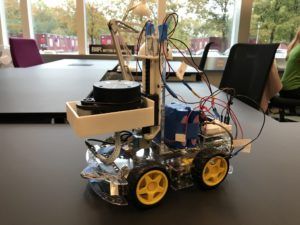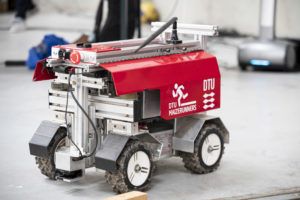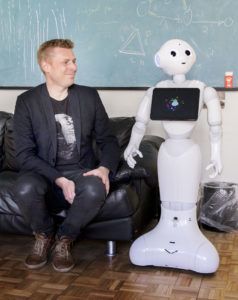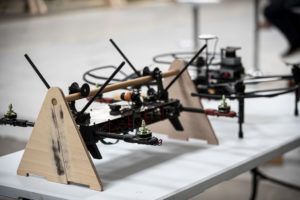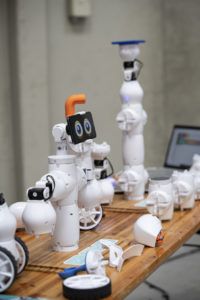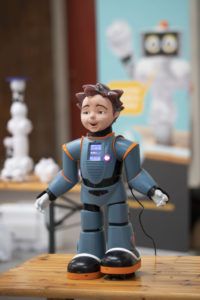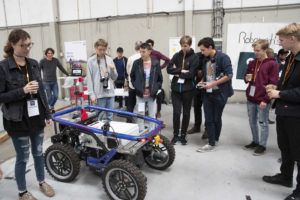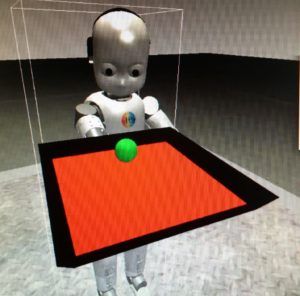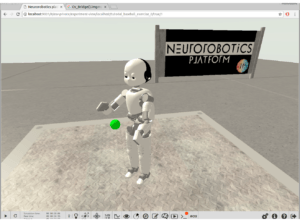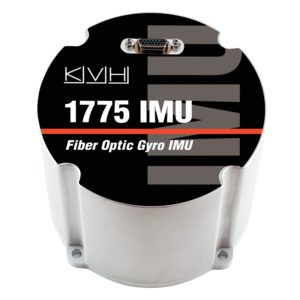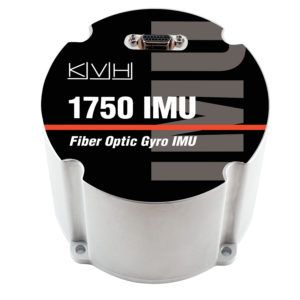
- This event has passed.
Event in Lyngby at DTU
6. November 2019 - 9:00 - 16:30
Free – DKK300Robotics event at DTU 6th November.
Impending global robot- and technology advancements - what can we learn across sectors and geographical regions?
Technology is going to be used by more and more people – we want to inspire potential users of technology and ask questions: Should we be afraid of new technology? We offer experience sharing and networking. We want attendees to get insights into what is already existing and what is coming. This event is for potential users of technology and people who are interested in getting more knowledge and be inspired across different businesses. Our goal is also to be part of reducing the gab between Academia and Society.
6th November - Robotics event at DTU
9.00 - 9.15
Welcome: Anders Bjarklev
9.15 - 9.20
DTU and Robotics/automation: Ole Ravn
9.20 - 9.50
Roberto Galeazzi: A new technological revolution at the horizon.
While Industry 4.0 is still unfolding introducing major changes in production processes and boosting a new economic growth, a new technological revolution is already at the horizon whose pervasiveness will breach the walls of the factories and reshape the whole society as we know it.
A new era is coming where machine intelligence will cross new frontiers and where collaboration between man and machines will determine new working paradigms. The rise of the collaborative autonomous systems era has already begun and future generations of engineers and technology developers need to be geared up to surf and steer the new technological wave. The Technical University of Denmark leads the way into this new technological revolution concomitantly launching the Centre for Collaborative Autonomous Systems, new outstanding experimental facilities for collaborative drone technologies and a new MSc program in Autonomous Systems.
9.50 - 10.20
Alessandro Rossi: Sensors for robotics.
When talking about robotics, gyroscopes and inertial measurement units are essential for navigation, guidance, stabilization and pointing of autonomous platform.
When talking about robotics, gyroscopes and inertial measurement units are essential for navigation, guidance, stabilization and pointing of autonomous platform.
One of the global leaders in the design and manufacture of Inertial Technologies is KVH Industries. Business Development Manager Alessandro Rossi will talk about Fiber Optic-based Inertial Sensors and Systems and what is important to focus on for different applications. You will see many different areas of uses in the Stabilization and Navigation of surface, subsurface and aerial platforms especially in the environment and applications where GNSS signal is weak, incorrect or not available.
KVH’s precision inertial technology supports system integrators in many exciting projects such as self-driving vehicles, humanoids, autonomous underwater vehicles, drones, 3D mobile mapping, optical sensor stabilization, Oil and gas exploration, Mining operations and many more emerging applications.
10.20 - 10.30
VANESSA CARPENTER. WOMEN IN HARDWARE
10.30 - 11.00
Coffee/ tea. Visit exhibition/ networking
11.00 - 11.30
Teodor petrov. Architecture and robotics
Teodor has a background in architecture and robotics. He will talk about the fusion of architecture, robotics and computation and how this creates a platform for new innovative ideas and change the architecture and construction industri we know today.
11.30 - 12.00
Morten Jacobsen. Experience using technology in school for children with special needs.
Telepresence robots and Virtual reality improve quality of life for students that can’t attend school due to physical or mental illness?
Telepresence robots and Virtual reality improve quality of life for students that can’t attend school due to physical or mental illness? See for yourself how the technology enables the ability to be a part of class even though the student is at home. You’ll be given examples of how to customize the technology, so it makes sense in an educational context, and you’ll see how the robot works. This presentation will be based on a case study of a 12-year-old Danish boy who hasn’t been to school for more than two years but has been beamed in on the robot everyday instead. It’s all about looking beyond the wow factor and instead focusing on the possibilities of new technology.
12.00 - 13.00
Lunch
13.00 - 13.40
Thomas Bolander: How to make future robots socially intelligent?
Thomas will present some of his recent research in social aspects of artificial intelligence AI. The goal is to allow AI systems to do social perspective taking.
Thomas will present some of his recent research in social aspects of artificial intelligence AI. The goal is to allow AI systems to do social perspective taking. Popularly speaking, this means to give them the ability to put themselves into the shoes of others. In humans, this ability is essential for our ability to collaborate and interact. It is reasonable to believe that it will come to play an equally essential role in the robots of the future - at least if we expect to engage with them in a robust and flexible way based on mutual understanding. In trying to provide robots with the ability to do social perspective taking, Thomas has sought inspiration in what we currently know about human social intelligence from cognitive psychology, philosophy and neuroscience. In his talk he will explain and demonstrate how we have used this inspiration to provide a humanoid robot with the ability to do social perspective taking and pass tests that were originally developed to test human cognitive abilities.
13.40 - 14.10
Martin Mose: AI and Robotics - what are the ethical challenges?
AI and robotics are fields in rapid development these days. What are some of the ethical implications of such technologies? How do we keep pur algorithms fair and free from discrimination? What are the ethical pitfalls of welfare robots, for instance simulating human emotions? In this talk Martin Mose will look at AI and robotics from the point of view of the ethicist.
14.10 - 14.30
pitchfire. Kenneth LArsen. Keystones
LuxC by Dr Mirvais Yousef. Founder/ CEO
Aim-Robotics by CEO Mie Haraldsted
Abzu – Inventing Transparent, general Purpose AI by COO Jonas Wilstrup
Go Dogo Aps by CEO Hanne Jarmer
14.30 - 15.00
Coffee/ tea. Visit exhibition/ networking
15.00 - 15.25
Mie Haraldsted. CEO aim-robotics. Design that solves a problem
What is good design? CEO at Aim Robotics Mie Haraldsted will share her thoughts on different paths to finding solutions for new tech.
What is good design? CEO at Aim Robotics Mie Haraldsted will share her thoughts on different paths to finding solutions for new tech. She will do this by introducing some of the projects she has worked on over the years: from guns to vacuum cleaners to cobots… – some made it to the market and some did not. All products had new tech and new user scenarios to consider so the route to get to a solution was different every time. Come and learn how she navigates in this space.
15.25 - 15.30
High5Girls. Sara leander-pehrson
High5Girls is a non profit organization working to get more girls interested in STEM
15.30 - 16.00
Silvia Tolu: Neuro-robotics: connecting body, environment and brain.
Understanding the brain is a challenge that more than 100 research institutions in Europe are trying to achieve in the framework of one of the two largest scientific projects ever funded by the European union, the 10-years project called: The Human Brain.
Understanding the brain is a challenge that more than 100 research institutions in Europe are trying to achieve in the framework of one of the two largest scientific projects ever funded by the European union, the 10-years project called: The Human Brain. This project aims to map the human brain and create an ICT-based research infrastructure to help advance neuroscience, medicine and computing. Among 13 sub-projects, the tenth is dedicated to Neuro-robotics in which researchers have created a platform for linking virtual brain models and simulated robot bodies. The main goal of the team at the Technical University of Denmark (DTU) is to get new insights into the brain’s connections ant its interactions with the body and surroundings, so that the brain is not only understood as a closed, abstract entity. We will discuss the brain and body relationship, and its importance on AI and robotics. Our approach is exemplified by bio-mimetic modular control architectures based on cerebellar internal models concept and machine learning optimisation that lead to a real-time control system. The system has been tested on different robotic platforms under both manipulation, visual, and locomotion tasks. This will be the state-of-the-art for more complex bio-inspired control architectures for neuro-robotics towards emulating the central nervous system functioning in motor control and learning.
16.00 - 16.30
Jacob Juul - Lou. Can Chinese tech innovators leapfrog western counterparts?
Chinese tech firms have outpaced most advanced countries in terms of new technology adaption, which has been driving tremendous growth and innovation in China.
Chinese tech firms have outpaced most advanced countries in terms of new technology adaption, which has been driving tremendous growth and in particular AI innovation in China. China’s fast-changing, complex and often ambiguous business environment is making Chinese tech and AI entrepreneurs rethink how they plan for the future, how they can deliver goods and services that global consumers are prepared to pay for and in the process create new jobs. As products made in China become more sophisticated it will also increasingly be Chinese consumers that set global standards and preferences. Given the speed with which their buying power is rising, products, technologies and business models will often leapfrog entire stages of development. Especially Chinese AI entrepreneurs that have been coping with the complexities of China’s market and business environment can be far better placed to come up with future answers than even the most experienced multinationals.
16.30
End of the day

Should we be afraid of the new technology?
Can it be used to solve some of the world´s major challenges such as:
Can technology help improve QoL for children with special needs?
Can robots and drones be used to make workplaces more safe?
These and many more questions will be tried answered at RoboInsights 6 November 2019
- Oticon hall
- 6 November 2019 9.00-16.30
Speakers seen below. Program subject to change
Roberto Galeazzi
While Industry 4.0 is still unfolding introducing major changes in production processes and boosting a new economic growth, a new technological revolution is already at the horizon whose pervasiveness will breach the walls of the factories and reshape the whole society as we know it. A new era is coming where machine intelligence will cross new frontiers and where collaboration between man and machines will determine new working paradigms. The rise of the collaborative autonomous systems era has already begun and future generations of engineers and technology developers need to be geared up to surf and steer the new technological wave. The Technical University of Denmark leads the way into this new technological revolution concomitantly launching the Centre for Collaborative Autonomous Systems, new outstanding experimental facilities for collaborative drone technologies and a new MSc program in Autonomous Systems.

Roberto Galeazzi
ASSOCIATE PROFESSOR IN AUTOMATION AND CONTROL AT TECHNICAL UNIVERSITY OF DENMARK
Anders Bjarklev
Anders Bjarklev will wellcome you and RoboInsights to DTU
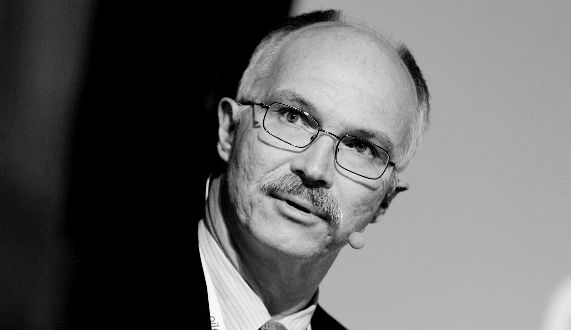
Anders bjarklev
PRESIDENT AT THE TECHNICAL UNIVERSITY OF DENMARK
Vanessa Carpenter
Vanessa will give an introduction to the organization "Women in Hardware"
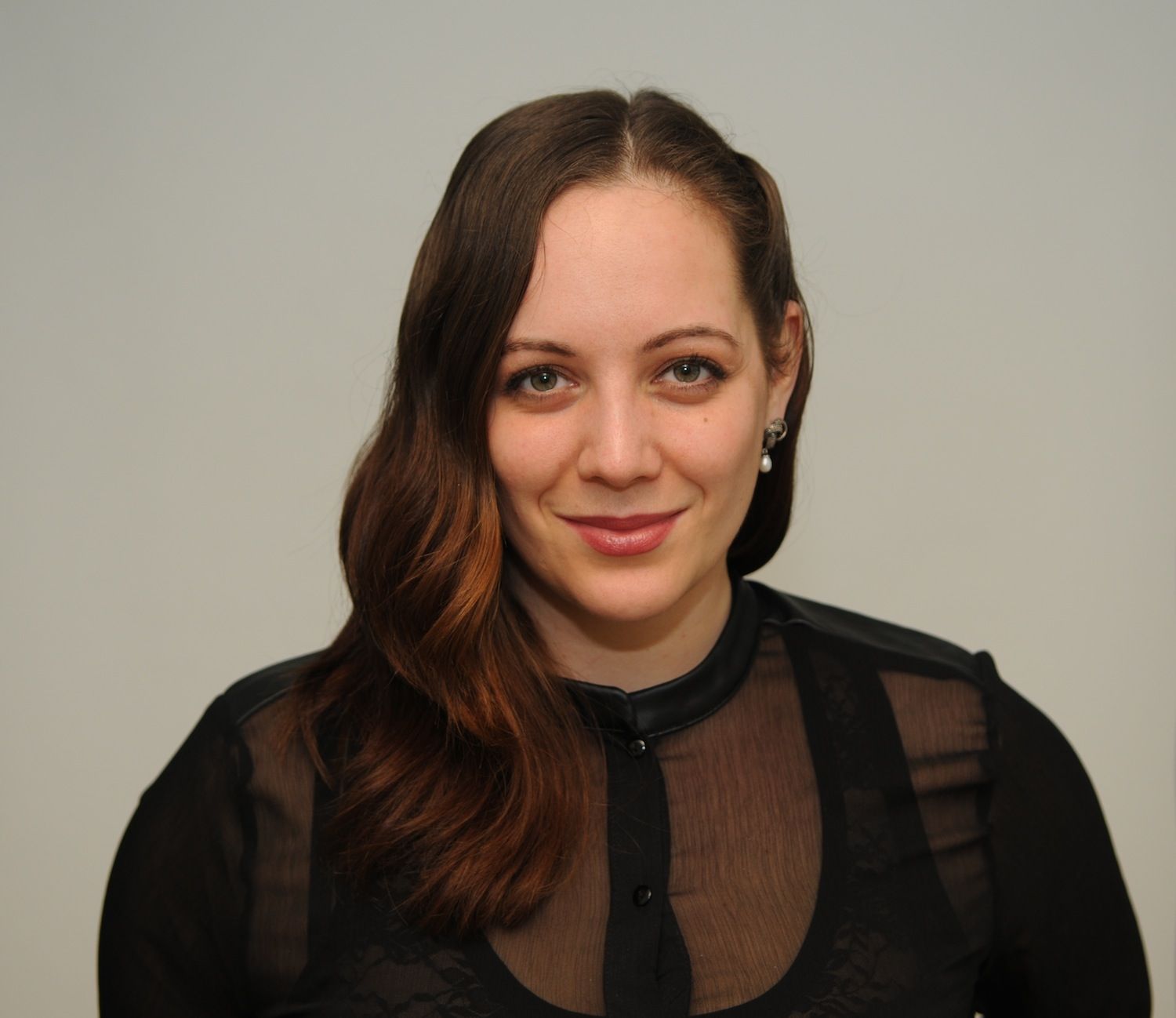
vanessa cARPENTER
SPEAKER & TECHNOLOGY EXPERIENCE DESIGNER. PHD
Kenneth Larsen
Keystones is a fast growing network of Danish company builders: business angels, serial-entrepreneurs and executives living acros the world with a shared love for entrepreneurship. Each week members strive to solve a new startup-case and make one small change in the world at a time. Keystones is specialized in the art of angel investing and new business development. Through more than a decade, they have built a strong reputation for helping hundreds of Danish startups, business leaders and angel investors partner up with one another. As a result they have served the largest accelerators, funds, public partners and angel networks across Denmark as an engine for sourcing, screening and qualification of high-potential companies.
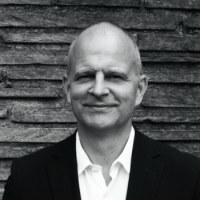
Kenneth larsen
Keystones
Sara Leander-Pehrson
Coming

Sara Leander-Pehrson
CEO Prezentor
Jonas Wilstrup
Abzu - Inventing Transparent, General Purpose AI
Abzu is developing a product that’s able to create automatic AI-based predictive solutions on data. They have a unique approach to data-oriented problems, that provides transparency and understanding of the results.
In short, the approach is a distributed artificial general intelligence that can recombine past learnings to solve increasingly complex problems. The learning process is entirely automated and is inspired by how the brain learns through forming new connections between cells, also taking inspiration from complexity theory.
The result is a network of cells that keep improving as new data and skills arise in the brain. The network itself can be inspected and gives insights on the relationship between the data input and how the solution was found. This alleviates the frustration with many deep learning techniques that provide a poor understanding of the inner workings of the resulting model.
We aim to bring AI into new domains that were previously not feasible by reducing the most time-consuming parts of the process and making the technology more accessible to everyone.
Jonas Wilstrup is responsible for investor relations, solutions, strategy and finance with Abzu. He has 11 years’ experience in strategy, finance & public affairs. Jonas holds an M.Sc. in Economics degree from the University of Copenhagen and has a 10-year experience in various leadership positions with different Danish companies. In his latest position Jonas has been Chief Financial Officer (CFO) in Wonderful Copenhagen. Jonas has a vast experience managing investor and stakeholder relations, developing strategy, management and political positioning of organizations.
Jonas is a major Trekkie and loves most things sci fi.
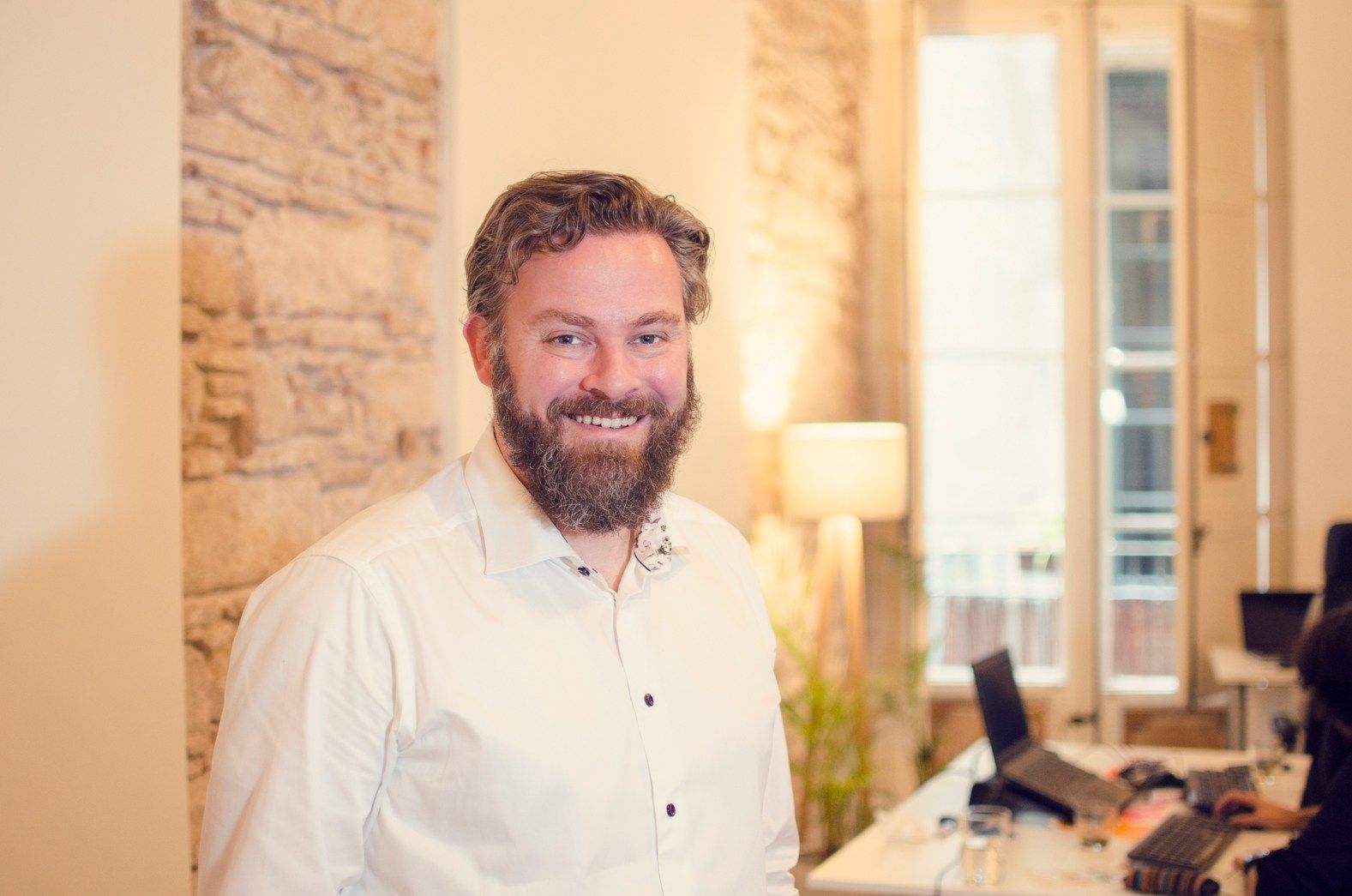
jonas wilstrup
CoO Abzu
Morten Jacobsen
Morten Jacobsen is using technology including robotics to help children with special needs to have a better experience in school. Come and hear his own experience. Morten is a professional speaker who is very enthusiastic about implementing technology that can help him in his daily work. Very inspiring and an interesting story from ”real life” about how technology can help children with special needs. Disruptive technologies in an educational perspective Skolen ved Nordens plads. Experience using technology in schools. K12 school for children with special needs. How can telepresence robots and Virtual reality improve quality of life for students that can’t attend school due to physical or mental illness?
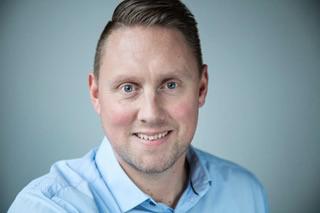
Morten Jacobsen
School at Nordens Plads
Per Sjoborg
Per Sjoborg, Host of Robots in Depth: the video interview show with everyone in robotics will attend with his studio to make interesting interviews during the days. Contact Marianne Andersen ma@roboinsights.com if you could be interested in making an interview. Per is founder of Aptomica that rents, trades, sells modular robotics, anything you need Dream, Rent, Build!
This is one of the interviews he did at the first RoboInsights conference in Elsinore 2018:
Presenting Harri Ketamo in Helsingör September 2018:
https://youtu.be/SXvWFedOOdw
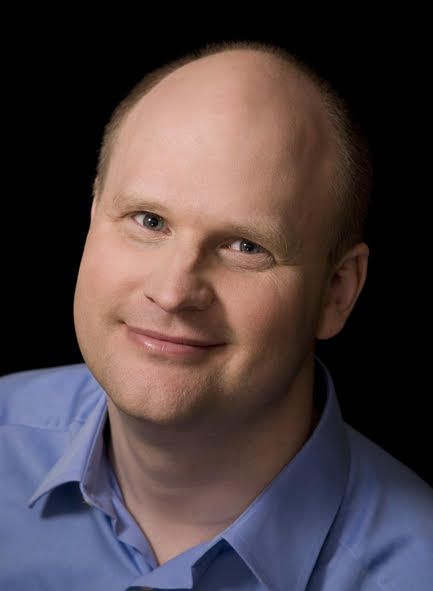
Per Sjoborg
Founder of Aptomica, Host of Robots in Depth
Teodor Petrov
Teodor Petrov has a background in architecture and robotics. He will talk about the fusion of architecture, robotics and computation and how this creates a platform for new innovative ideas and change the architecture and construction industri we know today. Futuristic Visions of Robotics that can revolutionize architecture & the construction industry. Multidiciplinarity in architecture today has opened doors for industries to influence one another and allow new knowledge and tools to become available for designers, architects and engineers to envision the future of architecture & construction. Thus the fusing of architecture, robotics and computation creates a platform for new innovative ideas to emerge shaping and changing the architecture and construction industry by providing new technological solutions and visionary ideas that aim to revolutionize the way we build the world around us. Teodor´s work aims to break the boundaries and challenge the way we currently build the world around us though series of research development moonshots his work aims to inspire and envision solutions to global problems by fusing architecture and robotics through multidisciplinary design thinking and visionary ideas.
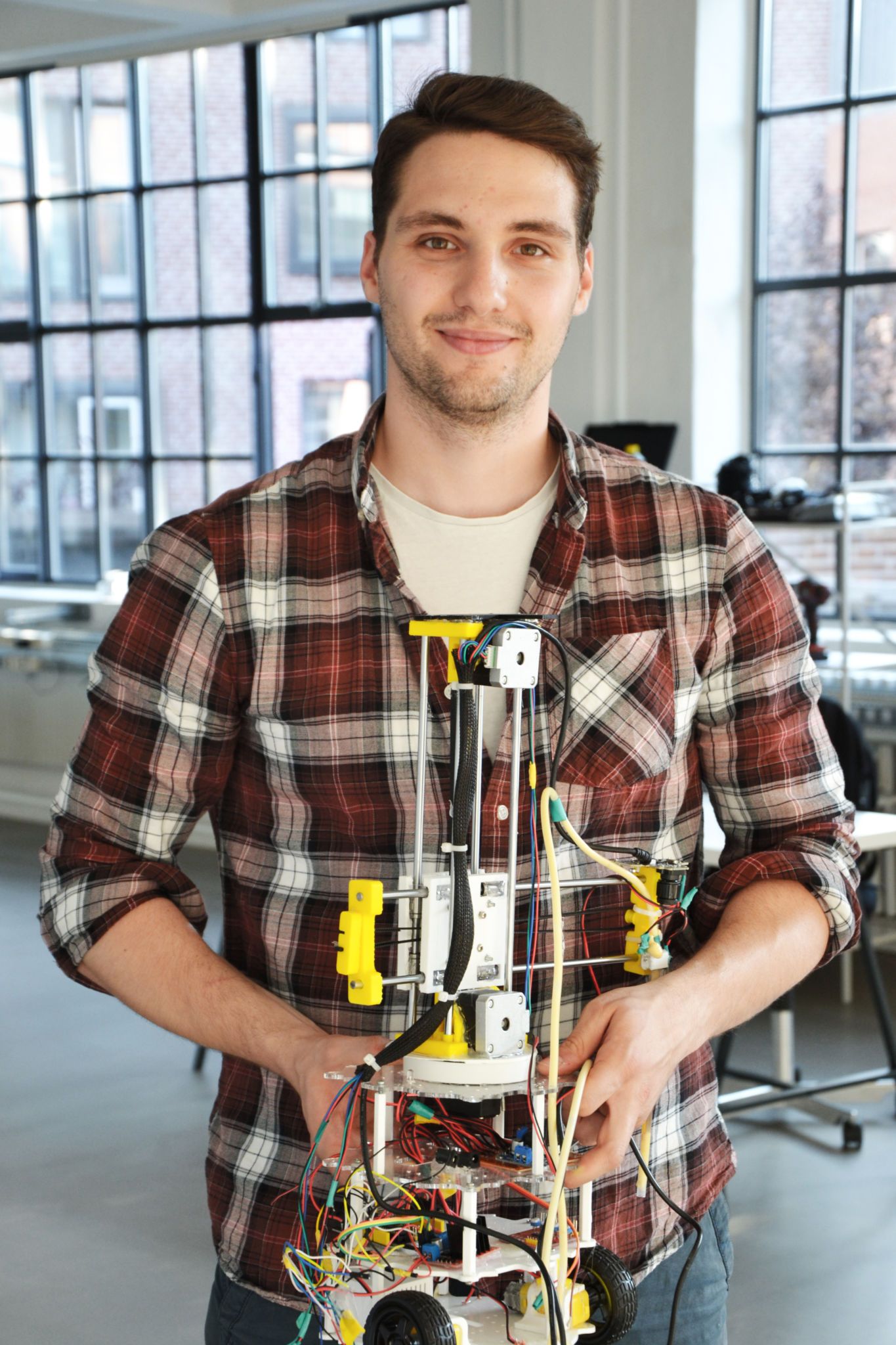
Teodor Petrov
TLP robotics research hub
Silvia Tolu
Understanding the brain is a challenge that more than 100 research institutions in Europe are trying to achieve in the framework of one of the two largest scientific projects ever funded by the European union, the 10-years project called: The Human Brain. This project aims to map the human brain and create an ICT-based research infrastructure to help advance neuroscience, medicine and computing. Among 13 sub-projects, the tenth is dedicated to Neuro-robotics in which researchers have created a platform for linking virtual brain models and simulated robot bodies. The main goal of the team at the Technical University of Denmark (DTU) is to get new insights into the brain’s connections ant its interactions with the body and surroundings, so that the brain is not only understood as a closed, abstract entity. We will discuss the brain and body relationship, and its importance on AI and robotics. Our approach is exemplified by bio-mimetic modular control architectures based on cerebellar internal models concept and machine learning optimisation that lead to a real-time control system. The system has been tested on different robotic platforms under both manipulation, visual, and locomotion tasks. This will be the state-of-the-art for more complex bio-inspired control architectures for neuro-robotics towards emulating the central nervous system functioning in motor control and learning.
Silvia Tolu is assistant professor and researcher in neuro-robotics at DTU. She will present a big and very prestigious project in which more than 100 research institutions have a unique mission: understanding the brain. This is the aim of the Human Brain Project, a 10-years European flagship. Achieving this goal will put in place a cutting-edge research infrastructure that will allow scientific and industrial researchers to advance the knowledge in the fields of neuroscience, computing, and brain-related medicine.
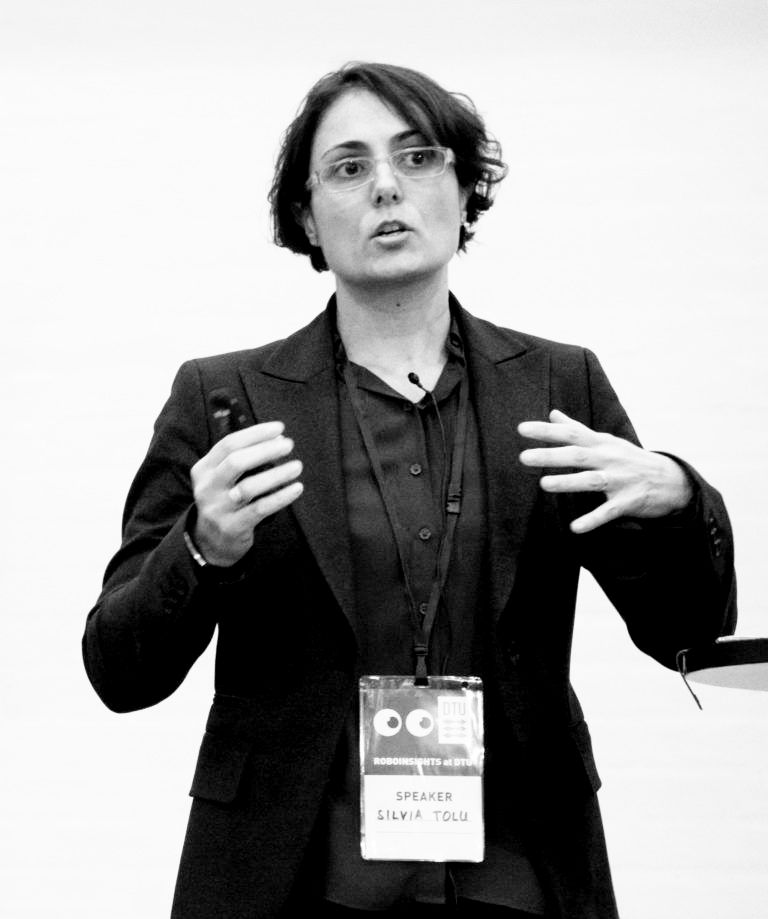
Silvia Tolu
phD and researcher in bio-robotics
Ole Ravn
Ole Ravn is Head of Automation and Control, Professor in Intelligent Robotics at Technical University of Denmark. He will introduce us to some of the interesting projects going on at DTU and also what robotics is use for in general.
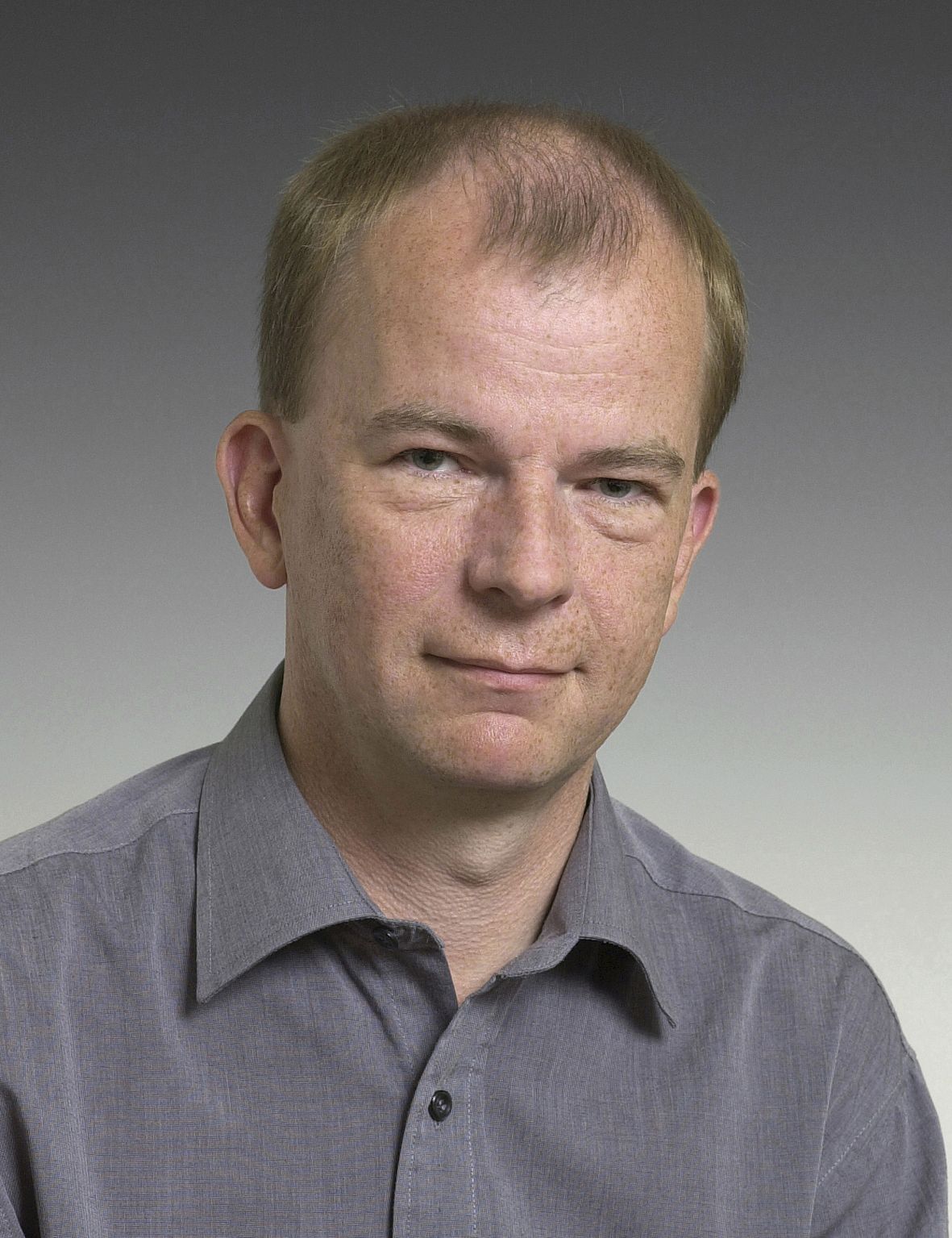
Ole Ravn
Head of Automation and Control, Professor in Intelligent Robotics at Technical University of Denmark
Thomas Bolander
Thomas will present some of his recent research in social aspects of artificial intelligence AI. The goal is to allow AI systems to do social perspective taking. Popularly speaking, this means to give them the ability to put themselves into the shoes of others. In humans, this ability is essential for our ability to collaborate and interact. It is reasonable to believe that it will come to play an equally essential role in the robots of the future – at least if we expect to engage with them in a robust and flexible way based on mutual understanding. In trying to provide robots with the ability to do social perspective taking, Thomas has sought inspiration in what we currently know about human social intelligence from cognitive psychology, philosophy and neuroscience. In his talk he will explain and demonstrate how we have used this inspiration to provide a humanoid robot with the ability to do social perspective taking and pass tests that were originally developed to test human cognitive abilities.
Thomas Bolander, PhD, is a professor at DTU Compute, where he does research in logic and artificial intelligence (AI). His research focuses primarily on social aspects of AI, that is, how to make future computers, smartphones and robots socially intelligent, so they can also start to understand a bit of how we humans think. The goal is to create computers and robots that can interact socially competent and flexibly with humans and other robots.
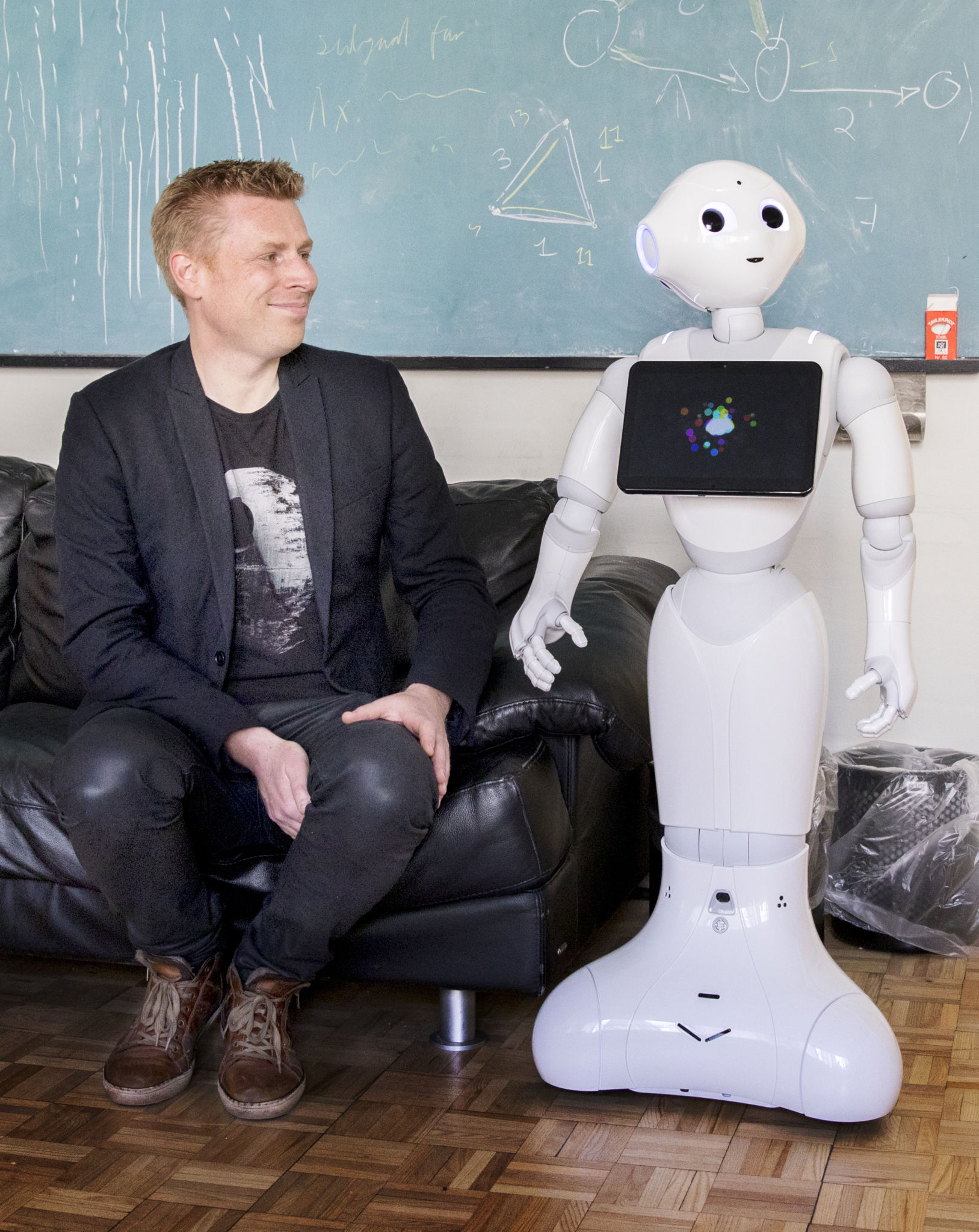
Thomas Bolander
PhD professor at DTU Compute
Martin Mose Bentzen
AI and robotics are fields in rapid development these days. What are some of the ethical implications of such technologies? How do we keep pur algorithms fair and free from discrimination? What are the ethical pitfalls of welfare robots, for instance simulating human emotions? In this talk Martin Mose will look at AI and robotics from the point of view of the ethicist. Martin Mose Bentzen is an associate professor at the Technical University of Denmark where he teaches philosophy of science and ethics in engineering. He has a background in philosophy and wrote his PhD dissertation about deontic logic.
Bentzen currently researches philosophical aspects of social robotics, in particular the possibility of devising logical systems for ethical robots.
One of his research projects is HERA (Hybrid Ethical Reasoning Agents). The goal of this project is to provide novel, theoretically well-founded and practically usable machine ethics tools for implementation in physical and virtual moral agents such as (social) robots and software bots. The research approach is to use advances in formal logic and modelling as a bridge between artificial intelligence and recent work in analytical ethics and political philosophy.
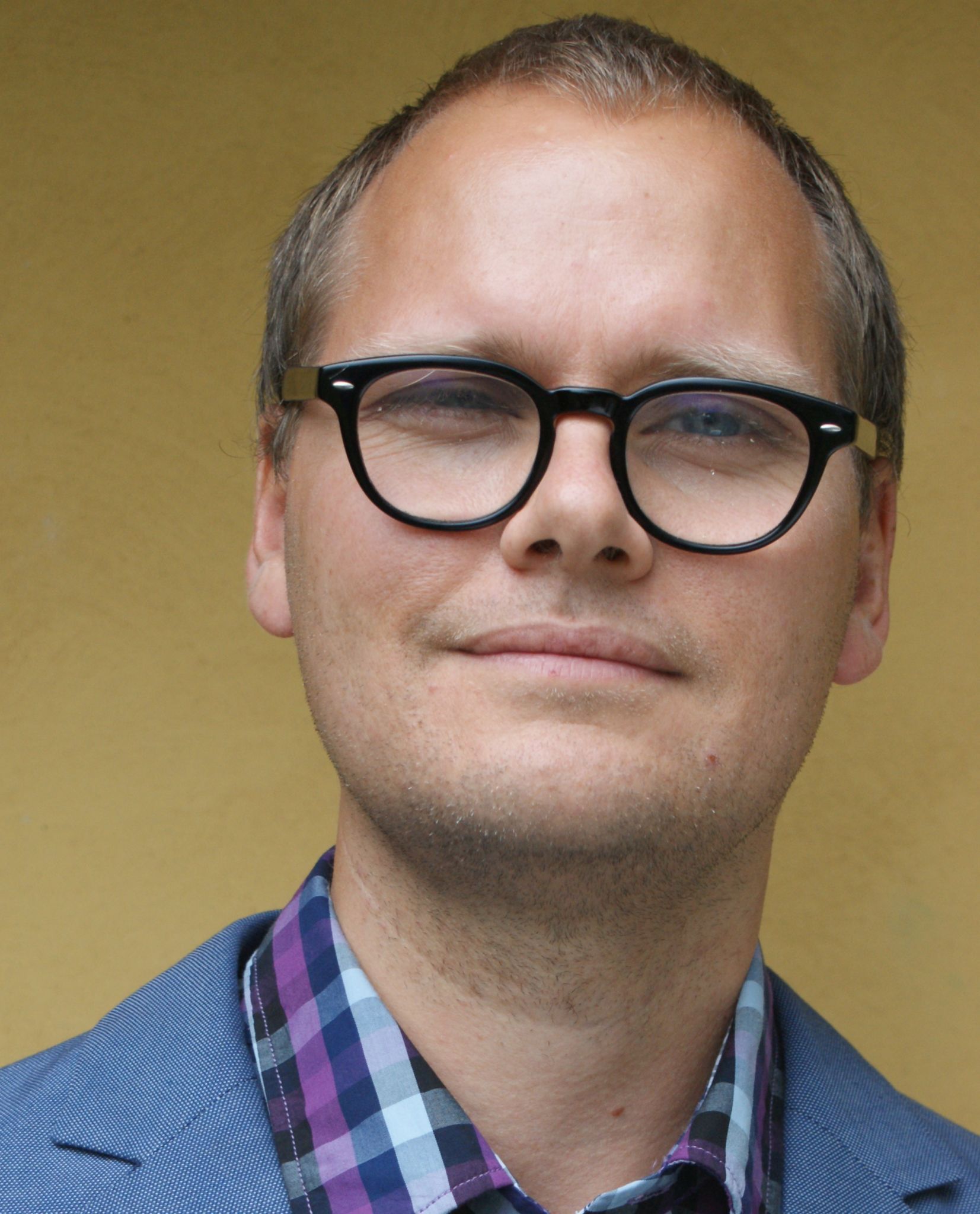
Martin Mose Bentzen
associate professor at the Technical University of Denmark
Alessandro Rossi
Coming soon

Alessandro Rossi
Business Development manager. KVH
Mie Haraldsted
Coming soon

Mie Haraldsted
CEO. Aim-robotics
Jacob Juul-Lou
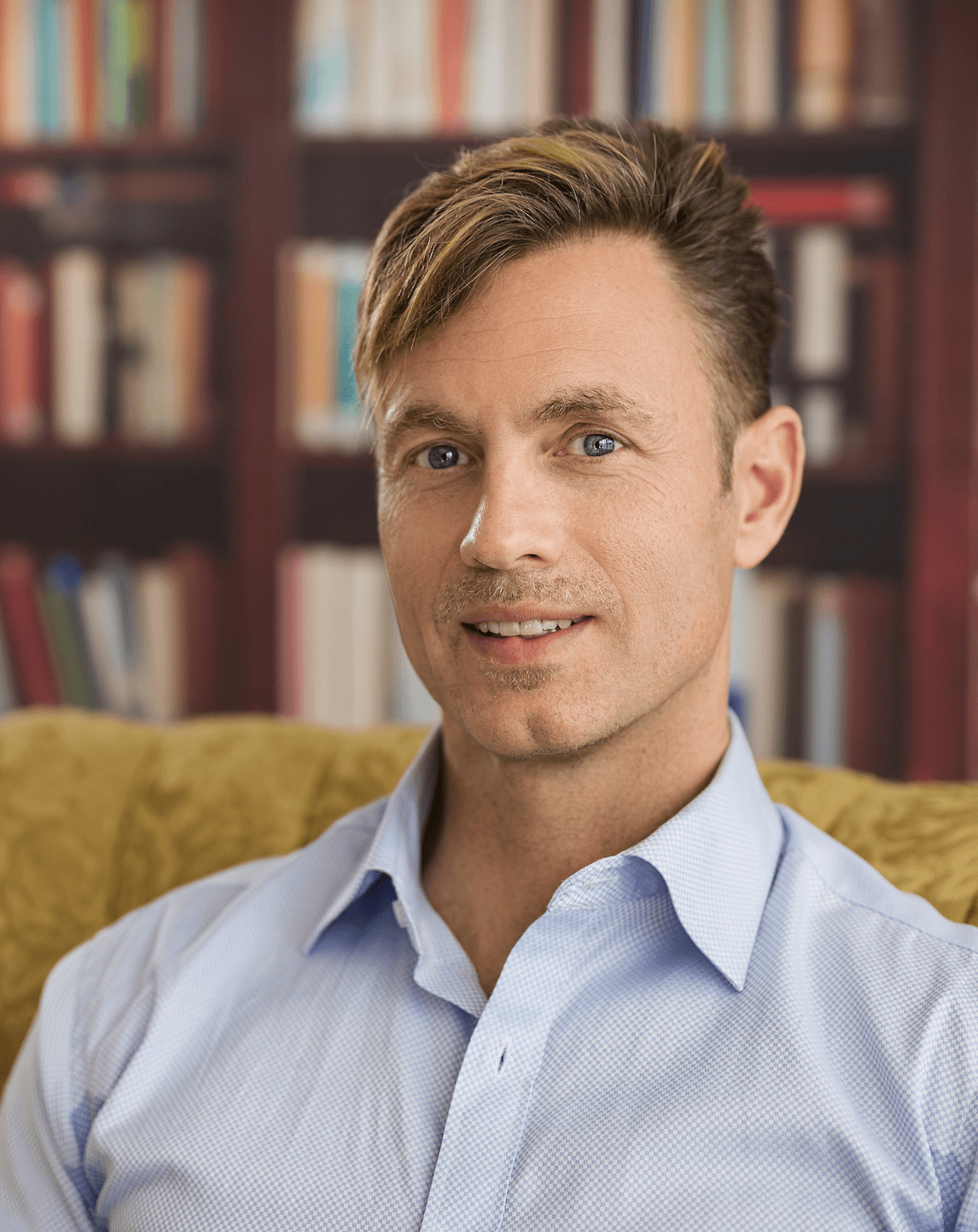
Jacob Juul-Lou
Founder. MIKTOS
Cristina Andersson
Building the eyes of future robots. LuxC is one of the few European companies who are building a Lidar. Lidar are the “eyes” of autonomous systems and will substantially advance the field of robotics. We are working on a low weight, low power and low cost solid state Lidar that can be build using wafer scale technologies and is the size of a match box. This, together with suitable AI algorithms, will allow robots to navigate and operate in complex environment.
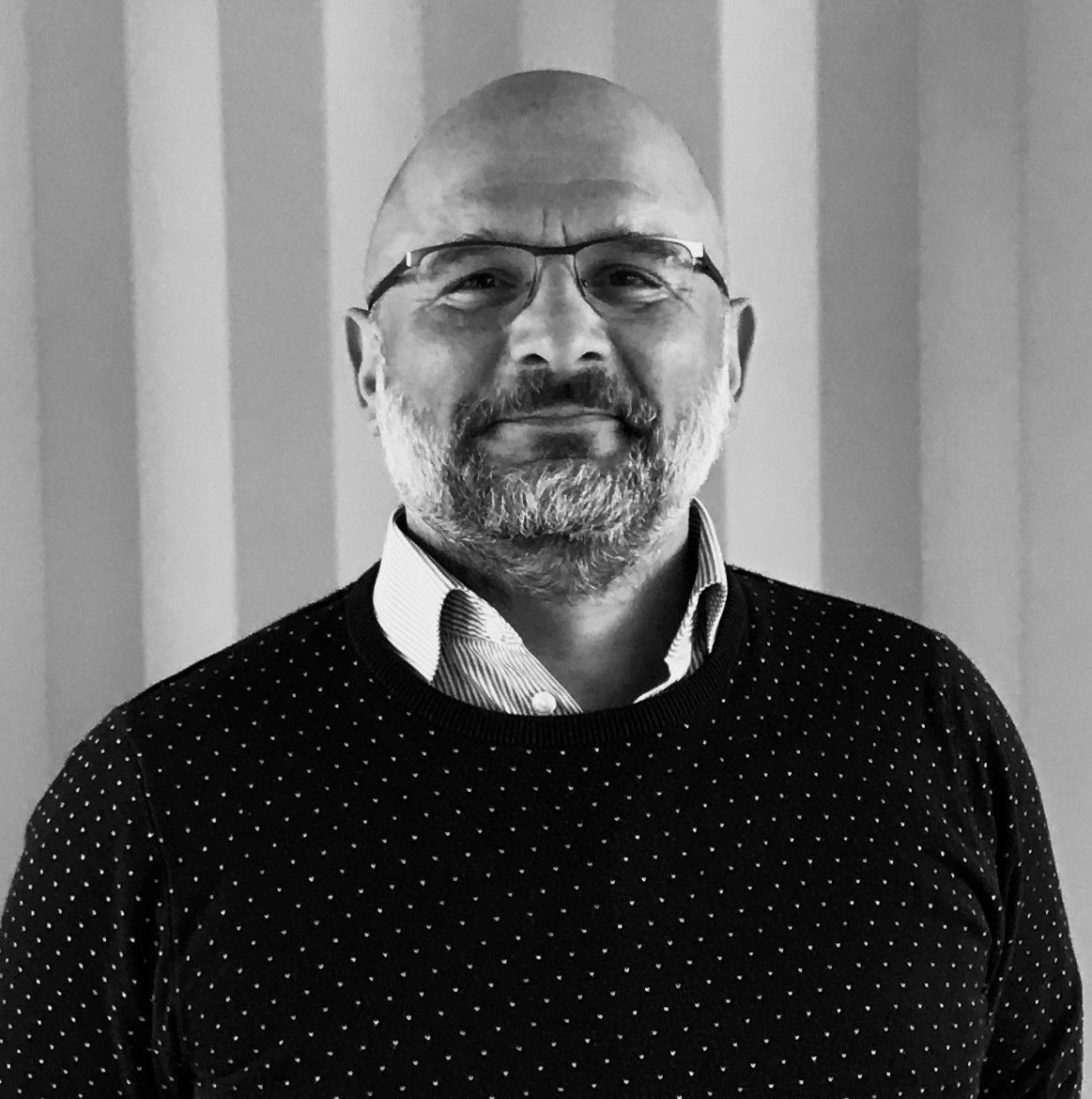
Dr Mirvais Yousefi
Founder. CEO. luxC
Marianne Andersen
Photographer during the 6th of November
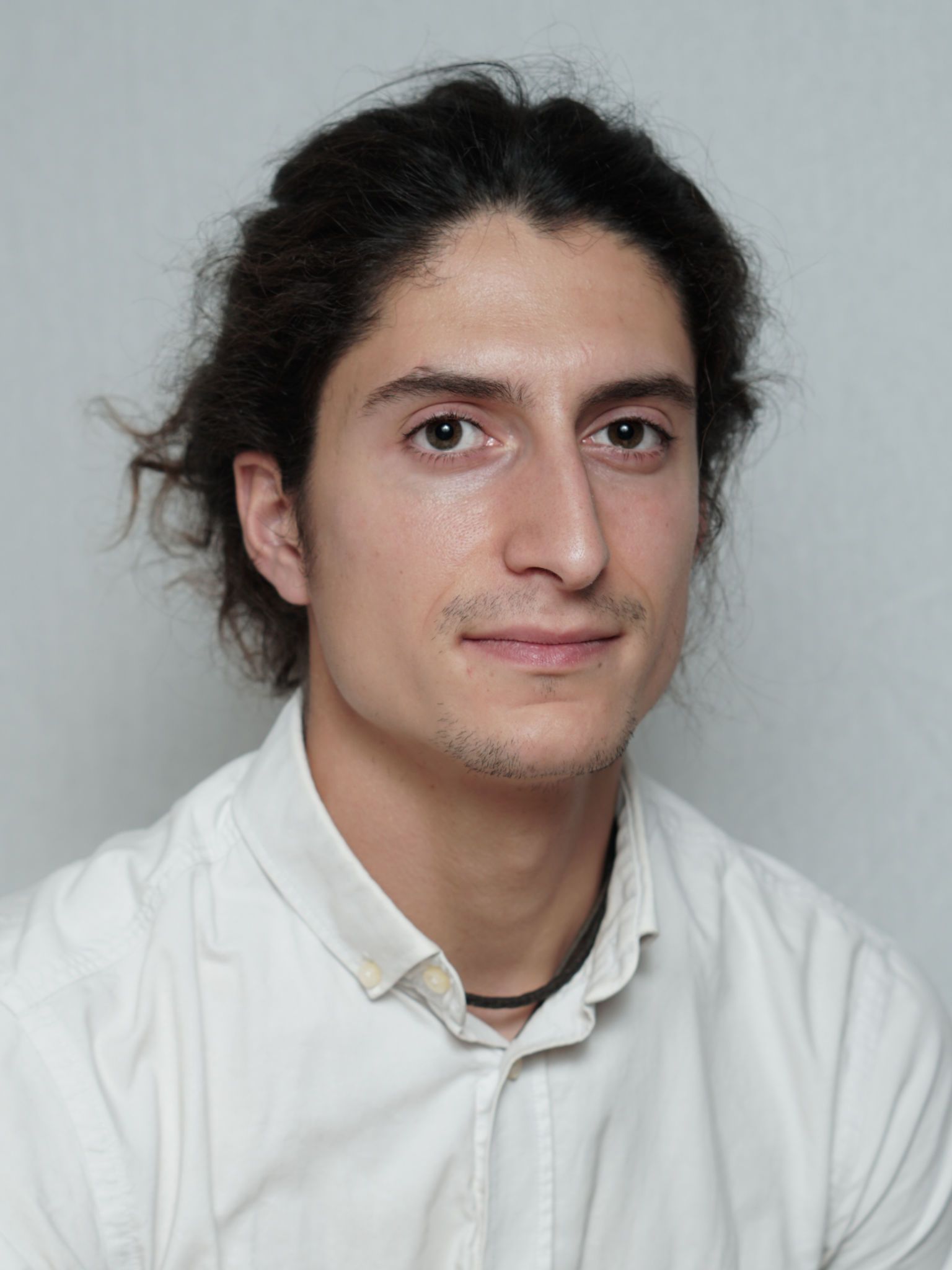
aitor Arruti
photographer
Diana Nielsen
Event Coordinator during the 6th of November
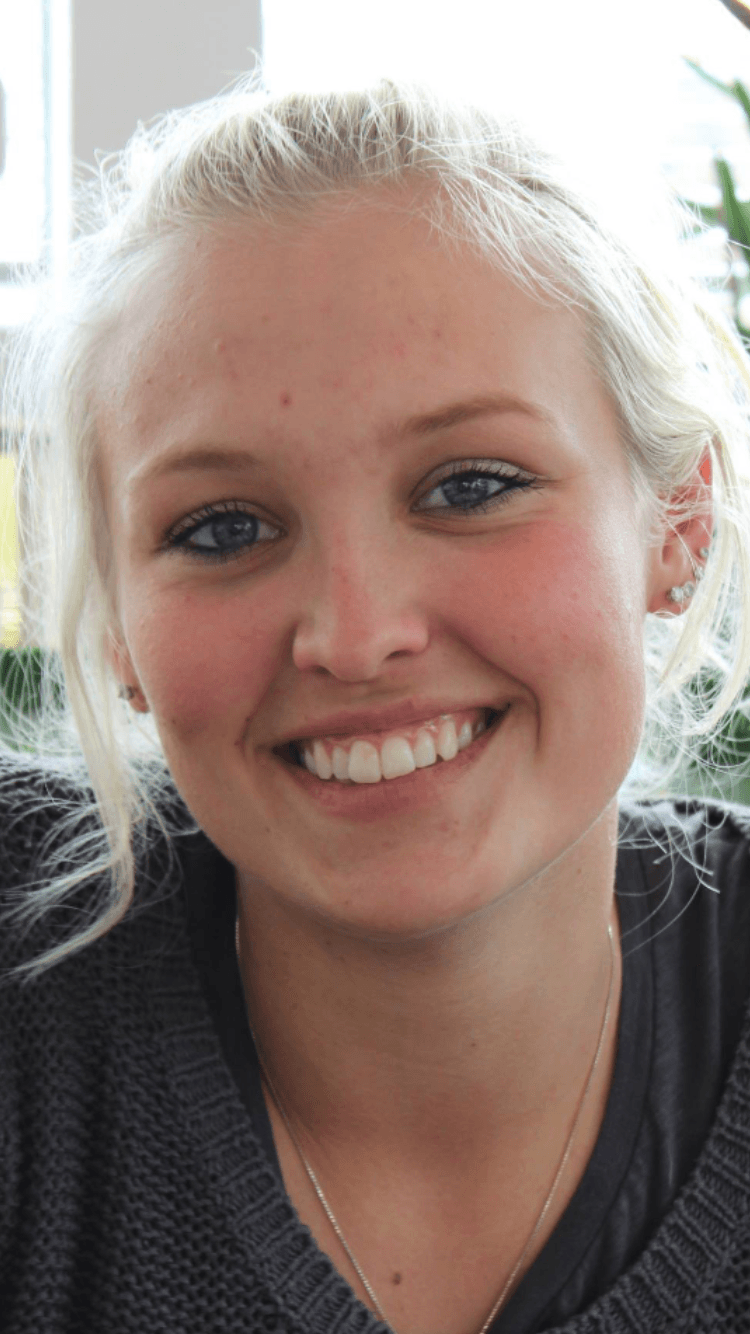
diana nielsen
event coordinator
Marianne Andersen
Moderator of the day
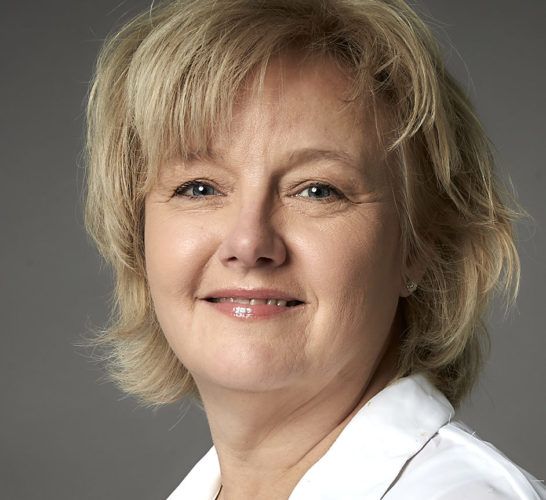
Marianne Andersen
Program manager & Moderator
Hanne Jarmer
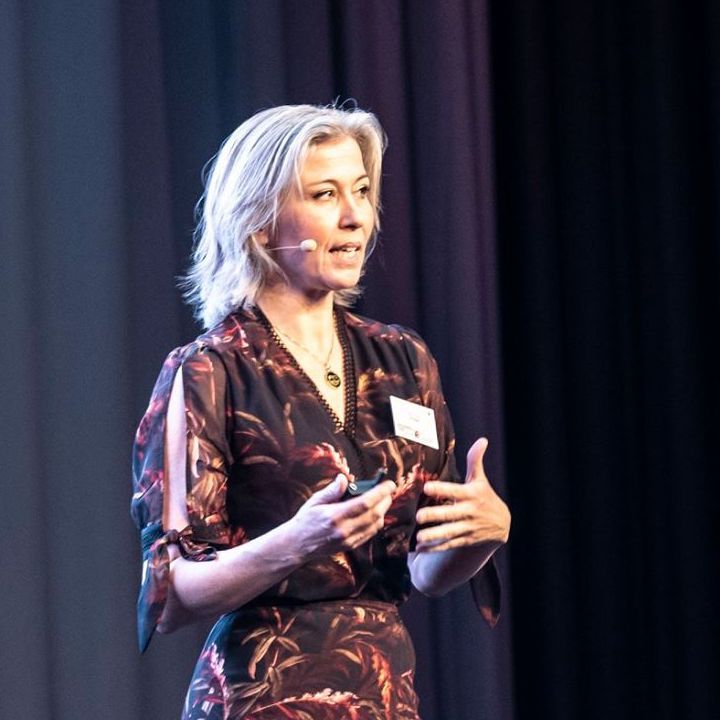
Hanne Jarmer
CEO. Go Dogo

”RoboCluster is supported by Ministry of Higher Education and Science and Region of Southern Denmark”
Are you interested in speaking?
If you are interested in speaking, please contact Marianne Andersen ma@roboinsights.com – we are especially interested in cases: where is the technology being used and what are the good/ bad stories to tell.
Details
- Date:
- 6. November 2019
- Time:
-
9:00 - 16:30
- Cost:
- Free – DKK300
- Event Category:
- Events
Venue
- DTU
- Oticon salen, DTU, Kongens Lyngby Denmark
Organizer
- Roboinsights
- Website:
- roboinsights.com
